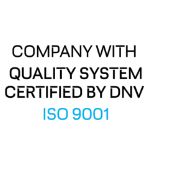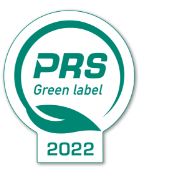Certifications

UNI EN ISO 9001
ISO 9001 certification allows an organization to develop and improve its performance through a critical analysis of the reference context and stakeholder expectations, pursuing continuous improvement of processes to minimize risks, reduce inefficiencies and ensure visibility and transparency towards the reference markets.

BRCGS Packaging
The BRCGS Packaging Materials Standard, developed by the British Retail Consortium (BRCGS) with the support of the Institute of Packaging and the associations representing packaging manufacturers, aims to guarantee health and hygiene safety, not only for packaging materials intended to come into contact with food, but also those used as primary packaging in sectors such as consumer products, secondary and tertiary packaging for all uses.
BRCGS Packaging certification aims to help retailers fully comply with legal obligations and protect the consumer by ensuring that suppliers of branded products operate in compliance with some fundamental requirements and well-defined quality standards.

PRS Green Label
For years we have been participating in the “PRS Green Label” circular network, i.e. a pallet recycling circuit to avoid waste. Thanks to this collaboration we help to reduce the carbon footprint, reduce packaging waste and promote reuse, while reaping the benefits of wooden pallets from certified sustainable sources (PEFC or FSC).

ISCC Plus
It is a worldwide standard that guarantees compliance with high ecological and social sustainability requirements, savings in greenhouse gas emissions and traceability throughout the supply chain. The use of sustainable materials, such as PP of bio-circular origin, is an important step forward to address the challenges of the sector and to offer customers eco-friendly packaging solutions by operating within a controlled supply chain based on traceability and chain of custody.